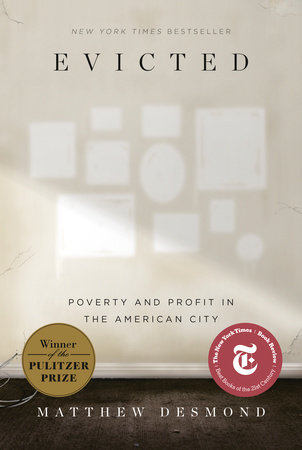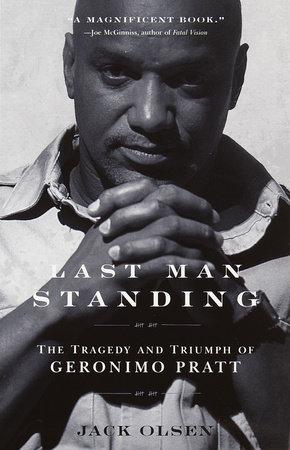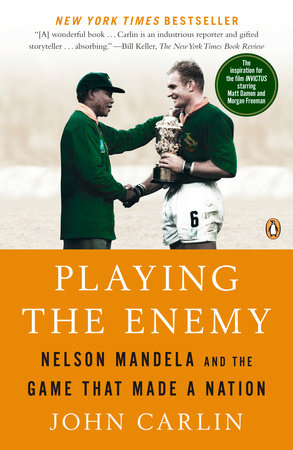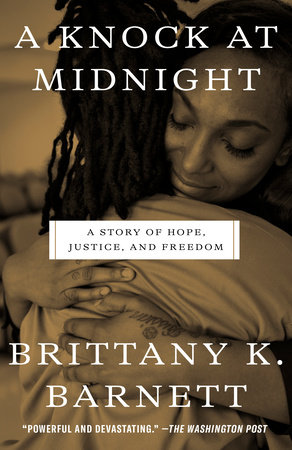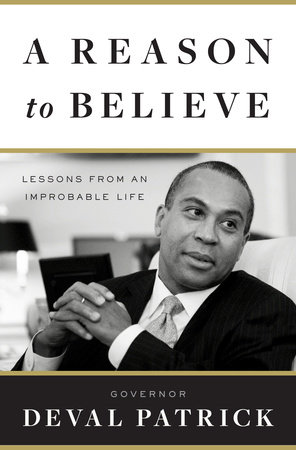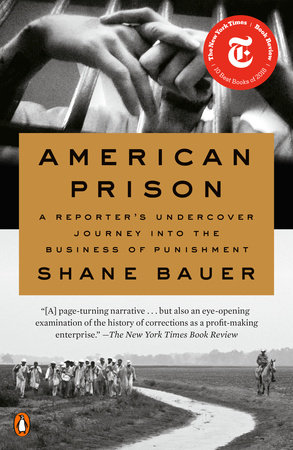A conversation with Matt Desmond,
author of
EVICTED
Why did you choose to write about this aspect of poverty in America?
If I had to answer this question in a word, it would be Arleen. When I first met Arleen, she was living in a small apartment in one of the poorest neighborhoods in Milwaukee. Her rent took 88 percent of her income. I watched Arleen try to raise two boys and confront impossible choices: Should I help pay for my sister’s funeral costs or pay the rent? Should I buy my children school clothes or pay the rent? I saw Arleen get evicted several times. She lost her possessions. Her children lost their schools and communities. Landlords wouldn’t rent to the family because of Arleen’s eviction record. People like Arleen forced me to see poverty in a whole new way. I used to think eviction and homelessness were the result of poverty. But I came to recognize that eviction is a cause, not just a condition, of poverty in America. The lack of affordable housing is driving families to financial ruin and is one of the most important drivers of inequality in the nation today.
How did you research EVICTED?
I began the old-fashioned way. I moved into a poor trailer park nicknamed “The Shame of the Southside” by the news media. I lived there for about five months before moving into a rooming house in the middle of the inner city, where I’d live for nine months. Living in those neighborhoods, I met families facing eviction and began spending my days with them. I sat beside families at eviction court, followed them into shelters, slept at their houses, and joined them at births and funerals.
As I spent more time with tenants, as well as with landlords, I found myself needing answers to basic questions that were beyond the reach of my fieldwork. How prominent is eviction? What are its consequences? Who gets evicted? So I went looking for studies that answered these questions. Surprisingly, I found no study—and no readily available data—that adequately addressed my questions. So I decided to gather the data myself. I interviewed 250 tenants in eviction court, surveyed over a thousand renters in Milwaukee, and analyzed hundreds of thousands of eviction court records. This research showed how common eviction is, and some of the most important findings had to do with the consequences of eviction. The data linked eviction to heightened residential instability, substandard housing, declines in neighborhood quality, depression, and even job loss.
EVICTED draws on all these endeavors while letting people’s stories drive the narrative. Working in concert with one another, each method I used enriched the others. And each kept the others honest.
Why did you choose to include landlords’ stories in your book, too?
Landlords literally own poor communities. They decide who gets to live where. They choose which families to evict and which to spare. They set rents, buy property, and make or neglect repairs. They are major players in the urban housing market. I realized early on that, if I really wanted to understand the dynamics of eviction and the link between housing and poverty, it was essential to capture landlords’ perspectives.
There is a larger point here about the way we think about poverty. With books about single mothers, gang members, or the homeless, social scientists and journalists have a tendency to write about poor people as if they are cut off from the rest of society. These accounts exclude rich people—or, at least, non-poor people—who wield enormous influence over the lives of low-income families and their communities. I’ve always wondered why we have documented how the poor struggle to make ends meet without asking why their bills are so high or where their money is flowing. With EVICTED, I wanted to try to write a book about poverty that didn’t focus exclusively on poor people or poor places. If poverty is a relationship, involving poor and rich people alike, I wanted to plumb that relationship.
Why did you choose Milwaukee?
Milwaukee moved me. I felt drawn to the place and its people, history, and culture. I am from a small town in northern Arizona, but there is something familiar to me about the Rust Belt. Cities like Milwaukee, Buffalo, Detroit—which have lost their economic base and are working to reinvent themselves—fascinate me, and I feel, in some way, at home in them.
But there was something else, too. Wisconsin’s largest city is not every city, but it is considerably less unique than the small clutch of iconic but exceptional places that have come to represent the American urban experience. Every city creates its own ecosystem, but in some cities this is much more pronounced. Milwaukee was far better suited to represent the experiences of those living in Indianapolis, Minneapolis, Baltimore, St. Louis, Cincinnati, Gary, Raleigh, Utica, and other cities generally left out of the national conversation. As for America’s large, global cities—San Francisco, New York, Seattle—they are where the lack of affordable housing is felt most acutely. New York City processes 80 eviction cases a day. There is nothing special about Milwaukee when it comes to eviction. The numbers are similar in Kansas City, Cleveland, Chicago, and other cities.
In 2013, 1 in 8 poor renting families nationwide were unable to pay all of their rent, and a similar number thought it was likely they would be evicted soon. This book is set in Milwaukee, but it tells an American story.
How did you gain the trust of those whose stories you tell in the book?
Living in the community helped. Many evicted families I met were my neighbors, and daily interactions helped us establish a foundation of trust. Some people opened up immediately. The first day we met, Scott told me that he was a fired nurse, consumed by a heroin addiction. Others took things more slowly. At first, Arleen suspected I worked for Child Protective Services and kept her distance. But with enough time, I was able to earn her trust. Showing her my previous work helped clarify what I did. Many of the landlords, too, were eager to talk. Arleen’s landlord, Sherrena Tarver, was in love with her work and proud of it. She told me that she wanted people to know “what landlords had to go through.” After a while, both tenants and landlords began to accept me and get on with their lives. They had more important things to worry about.
Most people think that eviction is the result of poverty, but you say above that eviction can actually cause poverty. Can you elaborate?
Eviction causes loss. Families lose their homes, schools, and neighborhoods—but also their possessions: furniture, clothes, books. It takes a good amount of money and time to establish a home. Eviction can erase all that. It also comes with a court record. Many landlords won’t rent to recently evicted families, and housing authorities treat eviction as a strike against those applying for public housing. The result is that evicted families often relocate to worse housing in more distressed neighborhoods. Eviction can cause workers to lose their jobs, because the stress and consuming nature of being forced from their homes wreaks havoc on people’s work performance.
Then there is the toll eviction takes on a person’s spirit. The violence of displacement can drive people to depression and, in extreme cases, even suicide. One study I published found that two years after their eviction, mothers still reported higher rates of depression than their peers. When you add all this up, the evidence is overwhelming. The lack of affordable housing the gap between the need and the amount of housing aid offered, and the resulting common occurrence of eviction in struggling communities—these are main causes of poverty in America. We can’t fix poverty without fixing housing.
If people are evicted, isn’t it their own fault, because they didn’t pay their bills? If they can’t afford their rent, why not just live in public housing?
I think the first thing we need to understand about this issue is that, today, the majority of poor renting families in America are spending more than half of their income on housing, and at least 1 in 4 dedicate over 70 percent to paying the rent and keeping the lights on. These families have watched their incomes stagnate, or even fall, while their housing costs have soared. But at a time when more and more families are in need of government support to afford housing, fewer and fewer are getting it. Today, only about 1 in 4 families who qualify for housing assistance receive it. The need far outpaces the aid. In larger cities like Washington, DC, the wait for public housing is counted in decades. There, a mother of a young child who put her name on the list for public housing might be a grandmother by the time her application is reviewed.
When we imagine where the typical low-income family lives in America, we should not picture a public housing complex or a subsidized apartment. Instead, we need to recognize that the typical low-income family doesn’t receive any government housing assistance and tries to make ends meet in the private housing market, where they spend most of what they have on rent. Under these conditions, eviction is more an inevitability than the result of personal irresponsibility. Between 2009 and 2011, 1 in 8 Milwaukee renters were involuntarily forced from their homes. A few generations ago, eviction used to be rare enough to draw crowds; today, eviction has become a way of life for many poor American families.
You spent a year living with people going through this experience. How did that change you?
It shook me to my core. I saw mothers trying to decide between feeding their children and paying the rent. I saw children so used to being batted around from one place to the next that they gave off no emotion during an eviction: no tears, no running to grab a favorite possession, nothing. I remember meeting Larraine, a grandmother who endured a winter in Milwaukee without heat because she simply couldn’t afford her gas bill.
I will never forget one eviction I saw. The sheriff and movers showed up to a house and found only kids inside, the oldest one a teenager. Their mother had died two months earlier, and the children had simply gone on living in the house by themselves. Inside, the house looked like a house run by children. It was raining. The deputies went ahead with the eviction, moving the children’s toys and mattresses onto the wet sidewalk.
It’s depressing to see this degree of inequality, this denial of basic needs. But I also saw a lot of spunk and brilliance and strength. I heard a lot of laughter. It was humbling to see families confronting huge, exhausting challenges and refusing to be reduced to their hardships.
I remember one day I was with Crystal and Vanetta, who were both homeless at the time. We were eating lunch at a McDonald’s and a boy walked in. He was maybe nine or ten, in dirty clothes and with unkempt hair. One side of his face was swollen. The boy didn’t approach the counter. Instead, he wandered slowly through the tables, looking for scraps. Crystal and Vanetta noticed him at the same time. “What you got?” Crystal asked, riffling through her pockets. The women pooled what they had to buy the boy dinner. Staring up at the menu, Crystal wrapped her arm around the boy as if she were his auntie or big sister. She made sure he was okay, handed him the food, and sent him on his way with a hug. Moments like this remind me that poverty has not prevailed against people’s deep humanity.
How can we fix this problem?
The good news is that much has already been accomplished. America has made impressive strides over the years when it comes to housing. In generations past, the poor crowded into wretched slums, with many apartments lacking toilets, hot water, heat, or windows. But over the generations, the quality of housing improved dramatically. And today, there are nonprofit and community-based organizations all around this country working hard to keep people in their homes and to promote affordable housing initiatives. I’ve built a website called justshelter.org that allows you to search over 600 organizations from all 50 states. So if you want to get involved in the work of decreasing homelessness, preventing eviction, and alleviating housing poverty, go there and see how you can get involved in your community.
And yet, it has become more and more difficult just to keep a roof over your head. Powerful solutions are within our collective reach. But those solutions depend on how we answer a single question: do we believe that the right to a decent home is part of what it means to be an American? We have affirmed provision in old age, twelve years of education, and basic nutrition to be the right of every citizen because we have recognized that human dignity depends on the fulfillment of these fundamental human needs. And it is hard to argue that housing is not a fundamental human need. Decent, affordable housing should be a basic right for everybody in this country. The reason is simple: without stable shelter, everything else falls apart.
America is more than capable of delivering on this right. And I think the most effective way to do that would be to expand our current housing voucher program so that all low-income families could benefit from it. Universal housing programs have been successfully implemented all over the developed world. The idea is simple: every family below a certain income level receives a voucher, so that instead of paying 60 or 80 percent of their income to housing, they now pay 30 percent. A universal voucher program would change the face of poverty in this country. Evictions would plummet. Homelessness would almost disappear. Families would immediately feel the income gains and be able to buy enough food, invest in themselves and their children through schooling or job training, and start modest savings. They would find stability and have a sense of ownership over their home and community. We can do this. We can make our cities livable again.
What do you hope readers will take away from your stories of Vanetta or Arleen or the others? What do you want us to understand about them?
I want them to remember how Vanetta organized an Easter egg hunt in a homeless shelter, bringing her children joy in the midst of a despairing time. I want them to remember how much satisfaction Arleen took when she caught a break and was able to buy her thirteen-year-old a new pair of shoes, a beautiful smile flashing across his face. People like Vanetta and Arleen, all they want is to provide for their children.
The faces of America’s eviction epidemic are the faces of mothers and children. The majority of households evicted in Milwaukee have children living in them. If mothers like Arleen and Vanetta didn’t have to dedicate 70 or 80 percent of their income to rent, they could keep their kids fed and clothed and off the streets. They could settle down in one neighborhood and enroll their children in one school, providing them the opportunity to form long-lasting relationships with friends, role models, and teachers. They could start a savings account or buy their children toys and books, perhaps even a home computer. The time and emotional energy they spent making rent, delaying eviction, or finding another place to live when homeless could instead be spent on things that enriched their lives: community college classes, exercise, finding a good job.
When families finally receive housing vouchers after years on the waiting list and only have to spend a third of their income on rent and utilities, the first place many take their freed-up income is to the grocery store. They stock the refrigerator and cupboards. Their children become stronger, less anemic, better nourished. But the majority of poor families aren’t so lucky, and their children—Vanetta’s kids, Arleen’s—are not getting enough food, because the rent eats first.
